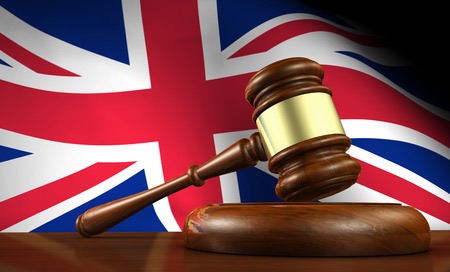“The attraction for SEP owners [of bringing FRAND cases in UK courts] is clear – provided they can establish that at least one UK patent is valid and infringed, the implementer is likely to face an injunction in the UK if they do not enter into a license on FRAND terms set by the court.”
 For a long time, the courts in England have been a forum of choice for the resolution of disputes between international parties, with the promise of an experienced judiciary and a cost-efficient approach to discovery and expert testimony. The English Patents Court is no exception, with multi-jurisdictional patent disputes often featuring an English action. In addition to the availability of specialist judges and legal teams, the ability to obtain some discovery when needed (but without the extensive, onerous and costly approach to discovery in the United States), to cross-examine experts at trial and to obtain declaratory relief make the UK an attractive jurisdiction. The thorough and reasoned judgments that can prove useful in parallel litigation across Europe and the general availability of injunctions are also key drivers for patentees.
For a long time, the courts in England have been a forum of choice for the resolution of disputes between international parties, with the promise of an experienced judiciary and a cost-efficient approach to discovery and expert testimony. The English Patents Court is no exception, with multi-jurisdictional patent disputes often featuring an English action. In addition to the availability of specialist judges and legal teams, the ability to obtain some discovery when needed (but without the extensive, onerous and costly approach to discovery in the United States), to cross-examine experts at trial and to obtain declaratory relief make the UK an attractive jurisdiction. The thorough and reasoned judgments that can prove useful in parallel litigation across Europe and the general availability of injunctions are also key drivers for patentees.
English FRAND-Friendly
In recent years, the English courts have also established themselves as a global hub for telecoms patent disputes, particularly in relation to standard essential patents (SEPs) and FRAND (fair, reasonable and non-discriminatory) licensing issues. This resulted from the approach adopted in the Unwired Planet litigation, where the English courts (including the Supreme Court) made clear that they had the jurisdiction – and were willing to exercise it – to determine the terms of global FRAND licenses and to grant injunctions against implementers found to have infringed a valid SEP if they refused to enter into a license on the terms set by the court. This decision triggered a flurry of further cases, filed predominantly by SEP owners (including Optis, Conversant, Philips and InterDigital) to try to get implementers to enter into global SEP portfolio licenses.
The attraction for SEP owners is clear – provided they can establish that at least one UK patent is valid and infringed, the implementer is likely to face an injunction in the UK if they do not enter into a license on FRAND terms set by the court. For patentees with a broadly global portfolio, and implementers with broadly global activities, such a license is very likely to be global in scope. Over the past year, numerous implementers (including Xiaomi and Oppo) have continued to try to persuade the Patents Court that this is not the appropriate approach, but with little success. While FRAND licensing issues are evidently global (and could well be addressed by other national courts), the English courts consider them at the relief stage when determining the remedies that may be available to a SEP owner for infringement of a UK patent. Viewed in this way, the English courts will clearly have jurisdiction over, and are the appropriate forum for, the dispute.
The Trade Off
But when it comes to determining the terms of the FRAND license, and particularly the royalty provisions, the position is not necessarily so attractive for patent owners. The English courts’ approach to discovery means that numerous comparable licenses are likely to be before the courts, complete with thorough analysis by valuation experts. In addition, the English courts have shown themselves willing to consider other approaches to valuation, such as top-down patent counting approaches, patent citation studies and, more recently, hedonic regression studies. English judges will not accept the positions adopted by either patentees or implementers without thorough consideration and an analysis of the factual and expert evidence provided. The royalty rates are, therefore, unlikely to be held to be as high as patentees might like, but the trade off is the potential to obtain royalties on the implementers’ activities globally. This may explain why numerous SEP owners file SEP infringement actions in other jurisdictions where they may be able to obtain injunctions without such detailed scrutiny of the value of their portfolios.
What’s Ahead
With a pipeline of further FRAND cases, 2022 promises numerous interesting developments in English FRAND jurisdiction:
- To date, there has only been one full FRAND license determination by the English courts, in the Unwired Planet But more are on the cards in 2022: in January/February, the English courts are hearing the FRAND trial between InterDigital and Lenovo, and in June/July the FRAND trial between PanOptis and Apple will take place. If these cases proceed to judgment, they will provide more useful data points on the methodology that the English courts adopt in determining FRAND license terms. The InterDigital/Lenovo dispute also promises to provide useful guidance on whether, and if so how, the English court will take account of the existence of parallel FRAND determinations in other jurisdictions (namely the US and China) in its global FRAND determination.
- Further guidance is also on the cards in relation to the question of whether a licensee is willing or unwilling, and the impact that has on their entitlement to a FRAND license. In September 2021, in the Optis/Apple dispute, the English court made clear that Apple (who had been found to infringe a valid UK SEP) must commit to take a FRAND license on terms to be set by the UK court or face an injunction. However, patentees continue to assert that “unwilling licensees” should irrevocably lose their entitlement to a FRAND license, and the English courts will grapple with this issue, which will also be considered in the InterDigital/Lenovo litigation, in 2022.
Unsurprisingly, other national courts are not standing idly by and letting the English court take a lead in resolving FRAND disputes. The Chinese courts have shown themselves willing to determine global SEP licensing rates in certain circumstances (which do not require the finding of a valid and infringed Chinese SEP), and the French courts have indicated that they can also do the same. As the English Supreme Court indicated in Unwired Planet, without some form of international agreement on how FRAND license disputes should be resolved, these battles are likely to continue to be fought through the national courts (increasingly involving the use of anti-suit injunctions and hotly contested jurisdictional battles) or via arbitration. Such an international agreement still seems a long way off, and in the meantime, 2022 should see further welcome guidance from the English courts at least on how they intend to deal with these disputes.
Image rights acquired via 123RF.com

![[IPWatchdog Logo]](https://ipwatchdog.com/wp-content/themes/IPWatchdog%20-%202023/assets/images/temp/logo-small@2x.png)


![[Advertisement]](https://ipwatchdog.com/wp-content/uploads/2024/04/Patent-Litigation-Masters-2024-sidebar-early-bird-ends-Apr-21-last-chance-700x500-1.jpg)

![[Advertisement]](https://ipwatchdog.com/wp-content/uploads/2021/12/WEBINAR-336-x-280-px.png)
![[Advertisement]](https://ipwatchdog.com/wp-content/uploads/2021/12/2021-Patent-Practice-on-Demand-recorded-Feb-2021-336-x-280.jpg)
![[Advertisement]](https://ipwatchdog.com/wp-content/uploads/2021/12/Ad-4-The-Invent-Patent-System™.png)







Join the Discussion
No comments yet.